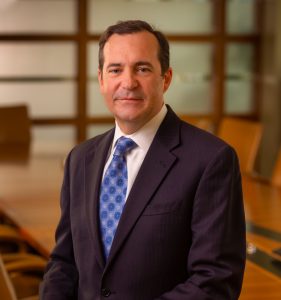Wisconsin’s New Regulation of AI and Deepfakes in Political Communications
As the capabilities of generative artificial intelligence have increased, so have concerns that generative AI might be used to manipulate voters and the administration of elections in the 2024 presidential election and primaries. The first warning shot came in New Hampshire on January 21, 2024, two days before the New Hampshire Presidential Primary Election, when numerous New Hampshire residents received robocalls that played a message with what appeared to be an AI-generated voice clone of President Joe Biden’s voice, encouraging recipients not to vote in the January 23, 2024 primary. The “deepfake” simulated voice of President Biden urged residents to “save” their vote for the November 2024 U.S. Presidential Election.
Within days, the New Hampshire Attorney General’s Office Election Law Unit launched an investigation into these calls in coordination with state and federal partners, including the Anti-Robocall Multistate Litigation Task Force, which is a bipartisan task force made up of 50 state attorneys general, and the Federal Communications Commission Enforcement Bureau.[1] In addition, the League of Women Voters of New Hampshire, the League of Women Voters of the United States, and several individuals have filed a civil lawsuit in federal court in New Hampshire alleging claims under Section 11(b) of the federal Voting Rights Act of 1965, the federal Telephone Consumer Protection Act, and the New Hampshire Election Laws for the unlawful infringement of voting rights and the distribution of unlawful robocalls.[2]
In November 2023, proposed legislation (2023 Assembly Bill 664) was introduced in the Wisconsin Assembly to regulate the use of deepfakes in Wisconsin’s elections.
Summary of the new Wisconsin law on synthetic media in political communications
On March 21, 2024, Governor Tony Evers signed a new law, 2023 Wisconsin Act 123,[3] which regulates the use of synthetic media in audio and video political communications. The law requires that any audio or video communication make certain disclosures if the communication: (1) is paid for by a candidate committee, legislative campaign committee, political action committee, independent expenditure committee, political party, recall committee, or referendum committee with a contribution or disbursement; (2) contains synthetic media; and (3) contains express advocacy (as defined under current law), issue advocacy, or supports or opposes a referendum. The law defines “synthetic media” as audio or video content substantially produced by means of generative artificial intelligence. Wis. Stat. § 11.1303(2m)(a)2. The law defines “issue advocacy” as a communication that provides information about political or social issues and is made to influence the outcome of an election. Wis. Stat. § 11.1303(2m)(a)1.
Under the law, every such audio communication must include at both the beginning and the end of the communication the words “Contains content generated by AI.” Wis. Stat. § 11.1303(2m)(b).
The law provides that every such video communication must include throughout the duration of each portion of the communication containing synthetic media, in writing that is readable, legible, and readily accessible, the words “This video content generated by AI” if the video includes video synthetic media only, “This audio content generated by AI” if the video includes audio synthetic media only, or “This content generated by AI” if the video includes both video and audio synthetic media. Wis. Stat. § 11.1303(2m)(c).
The law imposes a forfeiture of up to $1,000 for each violation of the law’s requirements, enforced in the same manner as other similar violations of Wisconsin’s laws regulating campaigns (Wis. Stat. § 11.1303(2m)(f)), and authorizes the Ethics Commission to adopt rules creating limited exceptions to the bill’s disclosure requirements (Wis. Stat. § 11.1303(2m)(d)). Compliance with the new law does not create an exemption from any civil or criminal liability, including for violations of Wis. Stat. § 12.05 (prohibiting false statements affecting elections). Wis. Stat. § 11.1303(2m)(e).
Finally, the law specifies that no liability for a violation of the law’s disclosure requirements shall attach to a broadcaster or other host or carrier of a video or audio communication and that the law may not be construed to alter or negate any rights, obligations, or immunities of a computer service or Internet access provider under federal law.
Who is regulated? Committees, not individuals, corporations, or social media platforms.
Wisconsin’s approach to regulating synthetic media in audio and video political communications focuses on certain communications paid for by contributions to, or disbursements by committees as defined by Wis. Stat. § 11.0101(6). The new law also immunizes social media platforms from liability for a violation of the law’s disclosure requirement. Wis. Stat. § 11.1303(2m)(g). If, for example, a candidate committee posts a deepfake on an online platform, the platform cannot be held liable for hosting even though the candidate committee could be.
What is regulated? Audio and visual deepfakes, not cheapfakes.
The new law covers only audio and video synthetic media—sometimes called deepfakes—that is, digital audio or video created using an editing process that is automated through generative artificial intelligence (GAI) techniques. Regulated deepfakes might, for example, depict a real candidate or politician saying something they did not say or an entirely fake person. The law does not regulate manipulated media—sometimes called cheapfakes or shallowfakes. Manipulated media can be as simple as mislabeling videos, or audio clips to imply they are from a different time or location, or editing a piece of media to make it look like something happened that did not. The new law also does not regulate the use of deepfake photos.
How are deepfakes regulated? The disclosure requirement.
The new law requires disclosure that certain communications contain synthetic media; it does not ban such communications.
Stafford Rosenbaum LLP’s Election and Political Law Practice attorneys continue to monitor ongoing efforts to regulate AI in political advertising at the federal, state, and industry levels. Contact us for more information regarding these efforts and the emerging trends.
[1]https://www.doj.nh.gov/news/2024/20240206-voter-robocall-update.html (last accessed March 19, 2024).
[2]https://www.lwv.org/newsroom/press-releases/lwv-files-federal-lawsuit-against-ai-generated-robocalls-sent-eve-new (last accessed March 19, 2024).
[3] https://docs.legis.wisconsin.gov/2023/related/acts/123.
Stafford Rosenbaum LLP is a full-service law firm with two convenient office locations in Madison and Milwaukee, Wisconsin. 145 years of dedication to businesses, governments, nonprofits, and individuals has proven that effective client communication continues to be the heart of our practice.





